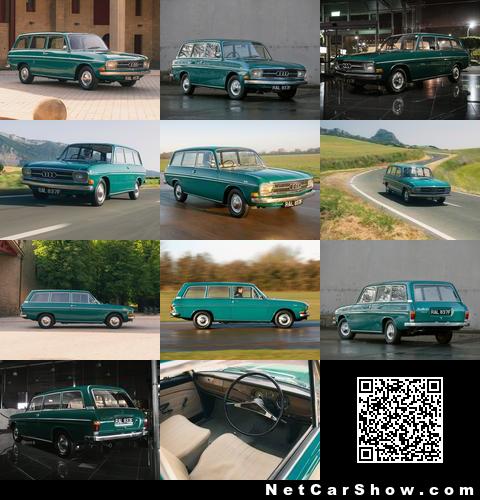Audi 80 Variant
Initially notable as the world's leading supplier of motorcycles, and subsequently an Auto Union brand represented by one of the four interlocking rings, DKW went on to be instrumental in the establishment of front-wheel-drive in road cars. Its later models also formed the backbone of the first modern day Audis, including the Audi UK Heritage Fleet's 80 Variant, which thanks to its registration has been affectionately christened 'Ralf'.
Early DKW offerings using the still rare front-wheel-drive configuration featured a leather-clad plywood body and were powered by a three-cylinder, two-stroke motorcycle engine. While the company later shifted to unitary steel construction, it continued with that original engine format right through to the final model to bear its badge, the F-102.
Although updated with input from Daimler-Benz, which briefly owned Auto Union in the 1960s, the previously highly acclaimed unit eventually began to lose ground. Soon after Volkswagen assumed control of the four Auto Union marques in 1964 it was consigned to history, and in its place came a sophisticated and refined four-cylinder, four-stroke engine initiated by Daimler-Benz and further developed by Auto Union technical director Ludwig Kraus. The first model to use it was originally, and logically, destined to be called the DKW F-103, but instead Volkswagen chose to increase the clean air between the generations by resurrecting a brand name that had lain dormant for 26 years and christening the newcomer as simply 'the Audi'.
Displaying clear visual links to the F-102, this portentous new arrival went on to spawn Audi 60, 75, 80 and super 90 models, their names determined by their power outputs. These were variously available in two-door and four-door saloon body styles and in Variant estate form, the latter accounting for a remarkably high percentage of sales.
Technical information
- Cylinders: four in-line
- Displacement: 1696cc
- Power: 80PS @ 5,000rpm
- Torque: 130Nm @ 3,000rpm
- Max speed: 94mph
- 0-62mph: 14.0 secs
- Transmission: four-speed manual
- Front-wheel-drive
- Weight: 1,025kg













![Audi S5 Sportback [US] (2020)](/R/Audi-S5_Sportback_US-Version-2020-ec-537eca16557bc5e4b78677abe022e6d502.jpg)
![Audi V8 [UK] (1989)](/R/Audi-V8_UK-Version-1989-ec-e7cc8bb54b80788592fd648800042b613a.jpg)

![Audi e-tron Sportback [UK] (2021)](/R/Audi-e-tron_Sportback_UK-Version-2021-ec-0fb5d7eb1064d04daab8326af0bd7e940d.jpg)













